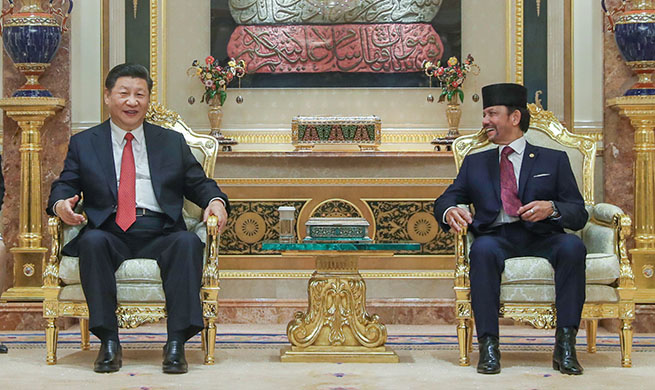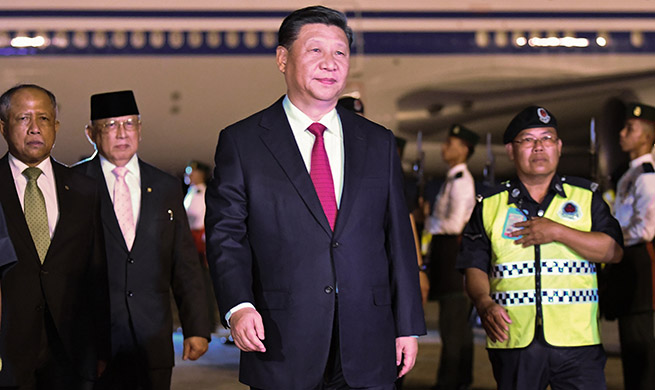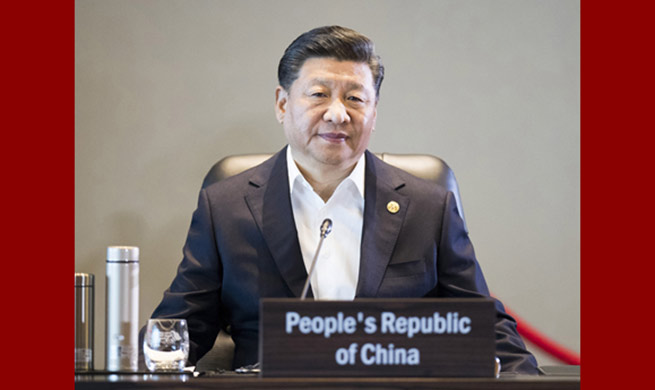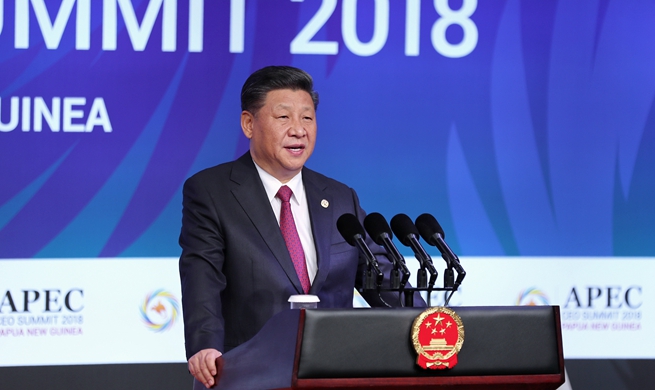BERLIN, Nov. 20 (Xinhua) -- German Finance Minister Olaf Scholz (SPD) warned on Tuesday that the departure of Britain from the European Union (EU) will witness an increase in economic risks faced by the bloc.
Speaking during ongoing budgetary consultations in the federal parliament (Bundestag), Scholz highlighted that members of the Eurozone were set to account for more than 85 percent of total EU gross domestic product (GDP) after Brexit. The requirements for the remaining 27 EU members to ensure household discipline would also rise as a result.
In light of this development, the minister had developed a policy package together with his French counterpart Bruno Le Maire which envisioned the transformation of the current European Stability Mechanism (ESM) into a full-fledged European Monetary Fund (EMF). Scholz expressed hope that such an institution would enhance the possibility of the Eurozone to assist members which were experiencing financial difficulties despite maintaining sound fiscal policies. He promised that the allocation of funds would occur under parliamentary scrutiny.
Germany and France are both advocating for members of the Eurozone to take more ambitious steps to complete the single currency area's banking union. The two neighbors have recently reached an agreement on first proposals to create a specific Eurozone budget and create institutional facilities to serve as a supranational lender of last resort during crises. So far, the plan has met with a lukewarm reception in most of the continent's capitals.
Aside from Eurozone reform, Scholz also told delegates on Tuesday that he wanted to improve the taxation of international companies with an international solution.
The finance minister criticized that several digital corporations showcased the "most prominent examples of creative tax evasion" and called for government cooperation on the subject to take place in the framework of the Paris-based Organization for Economic Cooperation and Development (OECD).
German Chancellor Angela Merkel has already proposed introducing a new tax on data in the digital economy. At the time, she argued that ongoing discussions in the EU over how to tax large tax companies like Google and Amazon only underscored the urgency of problems in the current regulatory regime governing digital commerce. The situation raised the question of whether traditional corporation tax models were still appropriate, or whether policymakers should instead resort to revenue-taxing to ensure a level playing field between digital and non-digital companies.













